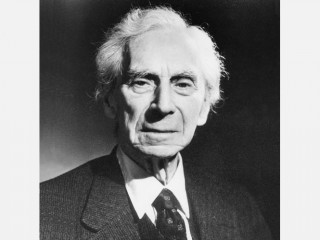
Bertrand Russell biography
Date of birth : 1872-05-18
Date of death : 1970-02-02
Birthplace : Trelleck, Monmouthshire, Wales
Nationality : British
Category : Arhitecture and Engineering
Last modified : 2010-05-03
Credited as : Philosopher and logician, Mathematician and historian, Anti-war activist
He was a prominent anti-war activist, championing free trade between nations and anti-imperialism. Russell was imprisoned for his pacifist activism during World War I, campaigned against Adolf Hitler, for nuclear disarmament, criticised Soviet totalitarianism and the United States of America's involvement in the Vietnam War.
Considered one of the greatest philosophers and prolific writers in numerous fields, Bertrand Russell eventually became a social reformer after he dedicated most of his life to explaining the paradoxes in logic in mathematics. He would soon turn away from what was called the Russell Paradox, move to the United States, and attempt to secure posts at several universities. Eventually, Russell wrote a best-selling book that would give him the freedom to expand his own philosophical horizons. He would go on to win the Nobel Prize in Literature in 1950 for his many works.
Born in Wales in the early 1870s, Bertrand Russell was raised in an aristocratic family. Tragically, however, his parents died when he was very young and his grandparents thereafter raised him. Russell’s grandfather with whom he lived served twice as the prime minister to Queen Victoria. Educated at home, Russell admits that he was lonely, but found solace at an early age in the study of mathematics – something logical with answers.
After attending Trinity College, he remained as a lecturer in various fields of philosophy. Due to his social standpoints against war, he was released from his post. When asked to join again later, he did and was honored for his work. Bertrand Russell married four times, but it was in his first marriage that his mathematical philosophy began to evolve. He worked on his gargantuan project entitled Principles of Mathematics. He wanted to prove that mathematics and logic were of the same field – math, a true extension of logic.
Russell spent several months in prison for voicing his opinions about war, especially against the British and American armies. While incarcerated, he wrote another paper, an opening for his book about mathematical philosophy. After his sentence, he visited China and Russia and drew his own conclusions about those governments. His controversial book, The Practice and Theory of Bolshevism laid the groundwork for political theory in the area for decades to follow.
Bertrand Russell spent a lot of time in the United States lecturing and even took posts at various schools, sparking controversy for his beliefs about morals in marriage as revealed in his publication in 1929 entitled Marriage and Morals. He moved to Pennsylvania and worked on his book entitled the History of Western Philosophy, which sold well.
Back in England, Russell joined Trinity College again and won an Order of Merit. And, in 1950, he won the Nobel Prize for Literature for tackling social issues and vying for freedom of thought across the globe. Later in his life, he led pacifist movements against World War II, the Cuban Missile Crisis, and against the Vietnam War.
















